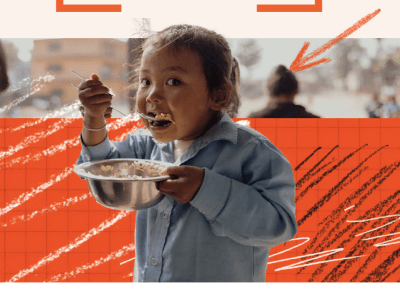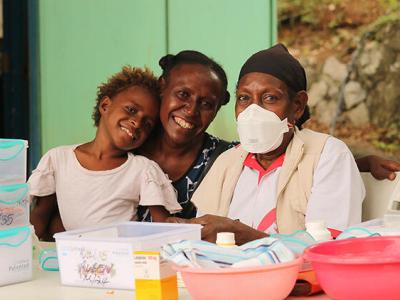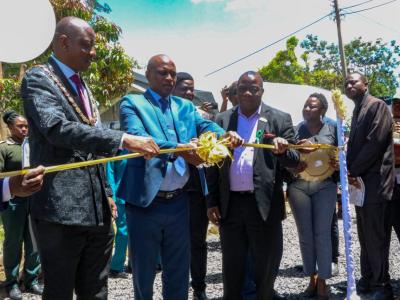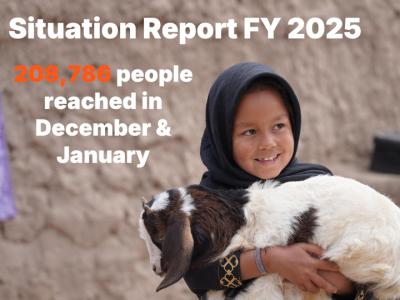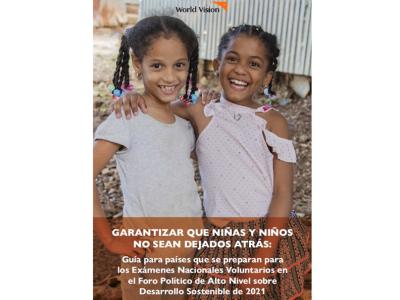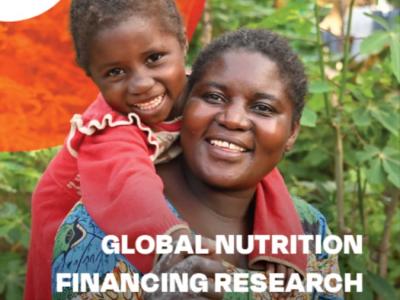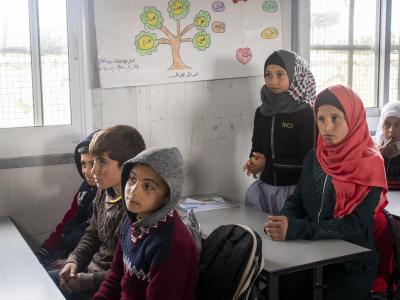publication / April 2, 2025
South Asia and Pacific ENOUGH 2025 Campaign Report
ENOUGH Report: Learn how World Vision fights child hunger in South Asia & Pacific. Discover youth-led solutions & our impact on nutrition policy.
publication / April 1, 2025
Global Fund Annual Report 2023
Results of World Vision's HIV, TB, and Malaria programmes, funded by the Global Fund.
article / March 14, 2025
A New Era in Public Health Emergency Preparedness and Response in Zimbabwe
Zimbabwe has taken a significant step forward in public health emergency preparedness with the official handover of eight state-of-the-art Public Health Emergency Operations Centres (PHEOCs) by World Vision Zimbabwe to the Ministry of Health and Child Care (MoHCC).
publication / March 31, 2025
Situation Report: December & January FY 2025
World Vision Afghanistan provided vital support to over 208,000 people in December and January 2025, delivering health, nutrition, WASH, education, psychosocial support, food security, livelihoods, and cash assistance.
publication / March 3, 2025
Nota de orientación: garantizar que los niños no se queden atrás
Un grupo de organizaciones y plataformas de la sociedad civil de todo el mundo se han unido para encargar una revisión independiente del informe de Revisión Nacional Voluntaria (ENV) presentado por los países al Foro Político de Alto Nivel.
publication / March 26, 2025
Global Nutrition Financing Research Report
World Vision and the SDG2 Advocacy Hub spoke with key stakeholders at global and national levels to uncover barriers to long-term, predictable, and accountable donor investment – and explore bold solutions.
publication / March 17, 2025
Annual Impact Report 2024
In 2024, World Vision International – Cambodia (WVI-C) made a profound impact, reaching over 3 million children across the country. Through strategic partnerships with government institutions, donors, and civil society, we implemented programs in education, health, child protection, economic development, and climate resilience. These efforts directly contributed to Cambodia’s Pentagonal Strategy and the United Nations Sustainable Development Goals (SDGs), helping to break cycles of poverty and create sustainable opportunities for vulnerable communities.
Key achievements this year included providing quality education to over 197,000 children, training more than 3,000 teachers, and expanding health and nutrition services to 54,000 children and 19,000 pregnant women. Our economic empowerment programs helped over 4,000 farmers adopt climate-smart agriculture, while social accountability initiatives improved public service delivery in over 60% of communes. Additionally, youth-led research on climate change influenced national conversations on environmental sustainability.
These achievements would not have been possible without the collaboration of development agencies, corporate sponsors, and government ministries. With funding from organizations such as the World Bank, DFAT, EU, GIZ, and SDC, we continue to scale impactful solutions for Cambodia’s children. As we move forward, we invite development partners and stakeholders to join us in building a future where every child in Cambodia can dream, learn, and thrive. Together, we create lasting change.
